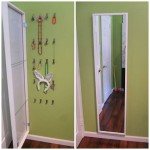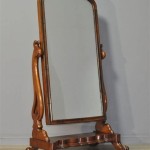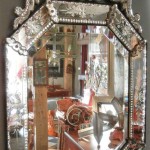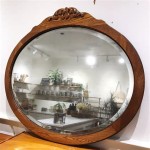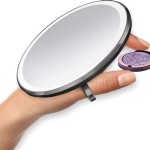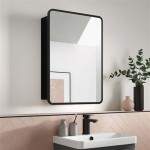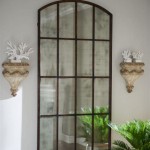Is It Bad Luck to Hang a Mirror Behind a Door?
The practice of hanging mirrors has a long and rich history, intertwined with cultural beliefs and superstitions. While mirrors serve a practical purpose, reflecting our image and adding light to a room, they have also taken on symbolic meaning in various cultures, sometimes associated with good fortune and other times with ill omens. The question of whether hanging a mirror behind a door brings bad luck is one such belief that persists in modern times.
Feng Shui and the Placement of Mirrors
Feng Shui, the ancient Chinese practice of harmonizing individuals with their surrounding environment, offers specific guidelines on mirror placement. In Feng Shui, mirrors are considered powerful tools that can either enhance or disrupt the flow of energy, known as "chi," within a space. Placing a mirror directly opposite a door is generally discouraged. The belief is that the mirror reflects the incoming chi back out the door, preventing it from circulating within the home and potentially hindering opportunities and good fortune.
Cultural Beliefs and Superstitions
Beyond Feng Shui, numerous cultures hold superstitions regarding mirrors and doorways. Some believe that mirrors can act as portals to other dimensions, and placing one behind a door could invite unwanted spiritual entities. Other traditions suggest that a mirror facing a door can reflect positive energy out of the home, leading to a decline in prosperity and well-being.
Practical Considerations for Mirror Placement
While superstition plays a role, practical considerations also influence mirror placement. Hanging a mirror behind a door can sometimes be inconvenient, especially in narrow hallways where it could pose a collision hazard. Additionally, depending on the door's swing arc, the mirror might be frequently obscured, minimizing its functionality.
Mirrors and Interior Design Principles
From an interior design perspective, placing a mirror behind a door can be an unconventional choice. Mirrors are typically used strategically to maximize light, create an illusion of space, or serve as a decorative element. While there are no strict rules against hanging a mirror behind a door, designers often prefer locations where the mirror can better contribute to the overall aesthetic and functionality of the room.
Alternatives to Hanging a Mirror Behind a Door
If the space behind a door is the only available option for a mirror, there are alternative approaches to consider. Instead of hanging a full-length mirror, a smaller, decorative mirror could be used. Alternatively, the mirror could be positioned on the wall adjacent to the door, allowing it to reflect light into the room while avoiding the potential negative connotations associated with placing it directly behind the door.
The Symbolic Power of Mirrors
Throughout history, mirrors have been attributed with symbolic power. They represent self-reflection, truth, and even the passage of time. It is perhaps this inherent symbolism that has led to the various beliefs and superstitions surrounding mirrors, including the notion that their placement can influence luck and fortune. Whether one subscribes to these beliefs or not, understanding the cultural and historical context can shed light on why certain practices persist.
The Impact of Personal Beliefs
Ultimately, the decision of whether or not to hang a mirror behind a door is a personal one. While some individuals may adhere strictly to Feng Shui principles or cultural superstitions, others may dismiss them entirely. The impact of such practices often depends on the individual's belief system and their personal interpretation of cultural traditions.
Mirrors in Contemporary Culture
In contemporary Western culture, the belief about mirrors behind doors causing bad luck is less prevalent than in some other cultures. However, the notion persists, often passed down through generations and perpetuated by folklore and popular culture. While many may not actively believe in the superstition, it can still influence design choices, demonstrating the continuing power of cultural narratives.
Balancing Aesthetics and Superstition
For individuals who wish to balance both aesthetic considerations and cultural beliefs, a compromise can often be reached. By carefully considering the location, size, and style of the mirror, it may be possible to integrate it into a space in a way that respects both design principles and any personal superstitions. This approach allows for a harmonious blend of functionality, aesthetics, and cultural sensitivity.
:strip_icc()/LightDwell-3095c5279d0b4511b10d154f3a21a9b7.jpg?strip=all)
10 Feng Shui Rules For Mirrors According To Experts
:strip_icc()/Design_CathieHongInteriorsPhoto_ChristyQPhotography-1f0a7254eb7a435aa80046b0bf60d33b.jpg?strip=all)
10 Feng Shui Rules For Mirrors According To Experts

Where To Hang Mirrors According Feng Shui Better Homes And Gardens

The Feng Shui Of Mirror Placement In Your Bedroom City Mattress

38 Feng Shui Mirror Placement Tips Complete Expert Guide
:strip_icc()/KatherineCarterDesign-3f8b299498274f03953732ece7b6e188.jpg?strip=all)
10 Feng Shui Rules For Mirrors According To Experts
:strip_icc()/Designer_KatieHackworthPhotographer_BelatheePhotography1-5ec16af89e9242cabd3c637c7eb23d4b.jpg?strip=all)
10 Feng Shui Rules For Mirrors According To Experts

Feng Shui Mirror Placement Tips For The Home Lovetoknow

Mirror Facing Bathroom Door Feng Shui Cures And Solutions
:strip_icc()/ReagenTaylorPhotography-16b1862fe1a64cefbae8671e1453c2e7.jpg?strip=all)
10 Feng Shui Rules For Mirrors According To Experts

